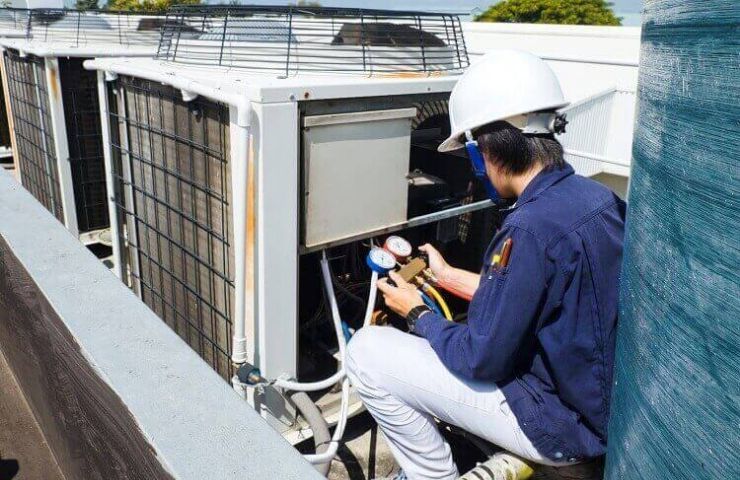
5 Interesting Facts About HVAC Technicians
It’s true that while we can’t control the weather and what Mother Nature bestows on us, fortunately we can control indoor climates. For this reason, HVAC technicians are our saviors, keeping us from freezing to death in the winter or passing out from heat stroke in the summer by installing, maintaining, and repairing functioning air conditioners, heaters, and refrigerator systems. But here are five interesting things that you may not know about HVAC technicians:
If you’re interested in training to become an HVAC Technician, consider enrolling in UEI College’s HVAC Training Program. The program can be completed, and you can earn your diploma in as little as 10 months!
Interested In Our Heating, Ventilation and Air Conditioning Program? CLICK HERE >
- They really are a jack-of-all-trades: To be effective at their jobs, HVAC technicians need to understand the nuances in equipment produced by different manufacturers in order to repair and maintain it. Not only do they need to understand different refrigeration systems per say, but they probably need to know a whole myriad of different water heaters and air conditioner systems as well.
- HVAC technicians are environmentalists: Proper ventilation is important to maintain our health, and the Environmental Protection Agency is active in implementing regulations to help employers and families maintain proper air quality in our workplaces and in our homes. As systems change to introduce “smart” technology systems that are more environmentally-friendly and energy efficient, it’s the HVAC technicians who are replacing old, outdated, and fuel-sucking equipment with new, greener systems.
- They can squeeze into tight spaces: Think about where your water heater is, or your air conditioning vents. Probably nestled into a small closet, in the basement, or in the ceiling. That makes HVAC technicians novice acrobats- needing to squeeze or crawl into dark, damp, or hot spaces to be able to fix what needs to be fixed.
- HVAC technicians are highly skilled: HVAC technicians have to be masters at their crafts to be able to fix any air conditioning or heating problem that comes their way. Let’s face it, it’s very unlikely that the majority of the people in your community have any idea how to fix their water heater, which is why HVAC technicians are so important to have around.
- Yes, there are women HVAC technicians: While it is true that HVAC is still a male-dominated industry, many women are making great strides in picking up trades and specialized skills. It’s true that men and women’s brains are wired differently. In the HVAC field, men have been known to be able to solve problems and use critical thinking to repair HVAC systems. However, when women interested in math and science recognize those specific skills early on and can apply their education and communication skills to a technician role, then it creates a winning combination for a successful HVAC technician career.
Interested In Our Heating, Ventilation and Air Conditioning Program? CLICK HERE >
THE SKILLS NEEDED TO WORK IN THE HVAC INDUSTRY
People who thrive in the HVAC industry are critical thinkers, problem solvers, good communicators, and are willing to continuously learn and expand their knowledge in the newest energy-saving trends and equipment. The most successful HVAC technicians are the ones who are able to handle everything from installations to repairs and maintenance, and work in varied conditions.
WHY BECOMING AN HVAC TECHNICIAN IS A GOOD CAREER CHOICE
Not only does the HVAC profession pay pretty well, many HVAC technicians are self-employed and have flexible schedules. Even the HVAC technicians who work for other companies are many times going to jobs by themselves, giving them independence and autonomy when dealing with the public, and making it a sound career choice.
BONUS TIPS FOR HOW TO SAVE ON YOUR OWN ENERGY BILLS
Even taking some time to learn about your own heating and cooling systems can help you save some money on energy bills. For instance, you can save energy by upgrading your water heater to a tankless system; paying attention to your utilities and figuring out what you can do to mitigate spikes in energy usage; and lowering your thermostat to 10 degrees cooler (as long as it’s still comfortable) to experience a substantial savings on your energy bill.
Interested In Our Heating, Ventilation and Air Conditioning Program? CLICK HERE >





